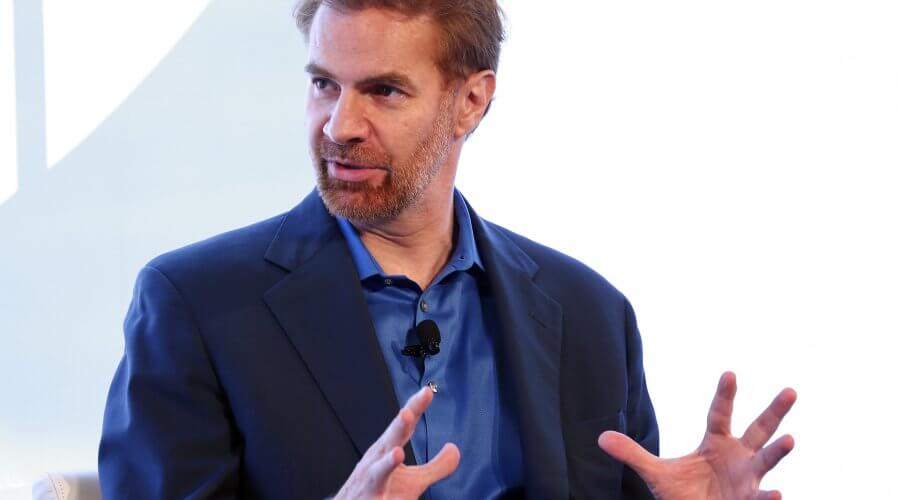
Erik Brynjolfsson of MIT’s Center for Digital Business speaks at another event earlier this year. Source: Neilson Barnard/Getty Images for The New York Times/AFP
What’s the one thing most leaders at Davos are concerned about?
DAVOS hosts leaders from all walks of life, and this year, one thing that everyone has been talking about is the growing technology skills gap and its impact on businesses (and economies) in the future.
Highlighted during a panel involving technology business leaders, the concerns about the lack of sufficient talent to benefit from new and emerging technologies that can really transform the world we live in echoed all day long and fuelled many discussions and debates.
“The thing we are most worried and concerned about is the skills shortage. At the rate and pace that the world is digitally transforming, that is a topic where everyone has to be included, because we can’t overlook anyone when we deal with the question of creating all the skills required for the future,” Dell CEO Michael Dell said at the event.
According to a recent study by Korn Ferry, technological advancement across all sectors of the global economy could be hindered by an acute global labor shortage of 4.3 million technology, media, and telecommunications workers by 2030.
Although the fears are real, the challenge leaders, regulators, and academicians are faced with is this: How can the world train the staff it needs in order to truly digitally transform?
Unfortunately, there isn’t a clear solution. The concern is, the lack of talent is not only going to create challenges for businesses, but also create an economic divide.
“While tech makes the pie bigger, there is no economic law that says everyone will get a share of that, or even benefit … Medium-income jobs have stagnated, so about half of the US population has not been participating in this bounty that digitization has created,” MIT academic Erik Brynjolfsson said.
However, many leaders believe that finding ways to train more people on tech skills can help bring more wealth to everyone, and hence, urge regulators and government organizations to create programmes that support the cause.
“Sharp digital inequality will prove very dangerous … so what do we do about it? I don’t think ad-hoc solutions, as good as they may be individually, are going to solve this, we have to think systemically,” said ONE CEO Gayle Smith.
“We have got to figure out ways to go to those that don’t have a big enough piece of the pie, with basic digital literacy they can invent all sorts of ways to give them paths to greater equality,” Smith added.
Although no resolution was found at Davos, it seems that the panel kickstarted a conversation.
As a result, if engaged with productively and proactively, leaders, once they return to their home turf, should be able to propel the creation of new initiatives that support talent generation for the digital age, across various industries and socio-economic classes.
READ MORE
- Ethical AI: The renewed importance of safeguarding data and customer privacy in Generative AI applications
- How Japan balances AI-driven opportunities with cybersecurity needs
- Deploying SASE: Benchmarking your approach
- Insurance everywhere all at once: the digital transformation of the APAC insurance industry
- Google parent Alphabet eyes HubSpot: A potential acquisition shaping the future of CRM




